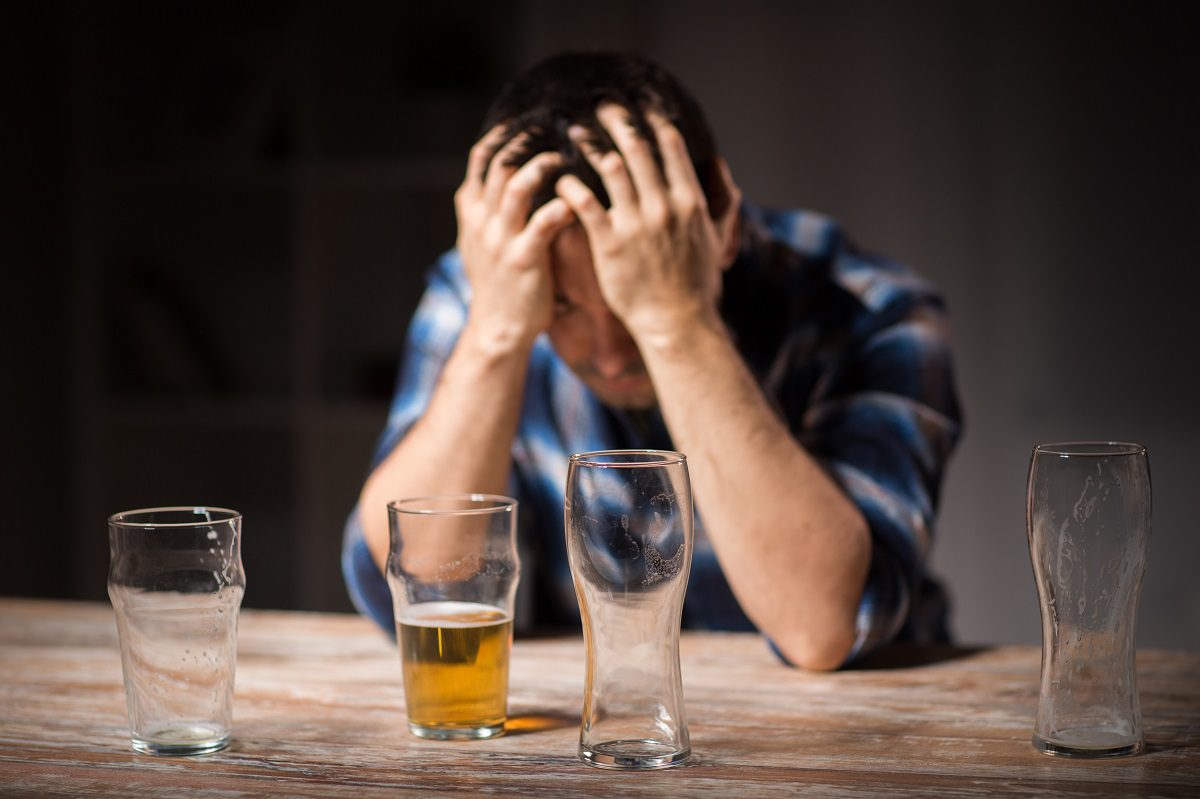7 Reasons To Seek Addiction Treatment
Substance use disorder, which is more colloquially known as drug addiction, is a serious mental...
toll free: 844.955.3042
local tel: 561.464.6505
fax: 561.450.6637
info@recointensive.com
RECO Intensive
140 NE 4th Avenue
Delray Beach, FL 33483
When a person has mental health issues, it is not that uncommon for them to also develop an addiction to one or more substances. Substance abuse is often the result of self-medication to deal with mental illness through drugs and alcohol.
In some cases, the person develops an addiction first, and then the mental health issue because of the addiction. For example, alcohol is a natural depressant. As such, alcohol addiction could eventually cause the person to feel depressed and pave the way to depression.
Other concerns are the effects drugs and alcohol can have on mental illnesses. Some people have a predisposition for mental health disorders because of family history, genetics, etc. Their substance abuse and addiction can serve as “trigger” for mental illness symptoms, as well as cause new symptoms to develop.
Furthermore, the mixing of various drugs and alcohol can have adverse effects for individuals taking prescription medications to manage their mental illness. Depending on what substances are being abused, the individual could experience adverse side-effects or discover their prescription medication is not effective, as its effectiveness is being counter-acted by the substances they are abusing.
It is important to stress that not everyone with mental health issues will develop an addiction. Conversely, people with addictions may not develop mental health issues, either. Mental health and addictions is a complex problem, and how addictions develop can and does vary from individual to individual.
Regardless of how they develop, one must treat both the mental health issue and the addiction as separate events through co-occurring dual-diagnosis treatment programs. Treating one and ignoring the other often leads to a relapse of the co-occurring condition.
According to the NIH (National Institute on Drug Abuse), “Multiple national population surveys have found that about half of those who experience a mental illness during their lives will also experience a substance use disorder and vice versa.”1 Research has also shown that adolescents with substance abuse problems have higher rates of dual-diagnosis mental health issues.
In addition, according to research from the NIH and adolescent substance abuse, “Over 60 percent of adolescents in community-based substance use disorder treatment programs also meet the diagnostic criteria for another mental illness.”1 Just like adults, adolescents can have various mental health disorders or risks for mental illnesses.
For example, a teenager has ADHD (Attention Deficit Hyperactivity Disorder) but has not been formally diagnosed by a healthcare provider. Rather, the teen decides to calm themself by self-medicating with alcohol or marijuana. Eventually, they must consume more and more of the substance to have the same effects and ultimately develop and addiction.
It can be difficult to diagnosis someone who has a mental health disorder and addiction right away. Initially, they may be skilled at hiding their addiction for healthcare professionals like their psychologist, counselor, or therapist.
In some cases, the patient may not present any symptoms of an addiction whatsoever until much later after dependence develops. Initially, the patient may seem perfectly normal and adhere to taking any prescription medication as directed.
In other cases, the patient may turn to self-medicating with alcohol when they are not given a prescription drug to help manage their mental health disorder. Again, initially, the patient can present as normal at first with so signs of alcohol abuse.
Addiction is not something that happens overnight. A patient who self-medicates and takes more of a prescribed drug or who drinks alcohol as a coping mechanism for their mental health disorder does not become dependent on the substance until later.
As the body builds up a resistance to it, the patient will need to take higher quantities of the substance to achieve similar effects. As the body is building tolerance to the substance, the body is also becoming more and more dependent on it so the person can function.
As you can imagine, this is a “slippery slope.” If the patient attempts to stop “cold turkey,” it could cause serious health issues both mentally and physically. Some patients even find they can no longer function without the substance because their body has become so dependent on it to function.
Aside from the addiction, the person is also struggling with their mental health disorder. Their addiction initially was a means to help them feel better about themselves and address their mental illness. Now, they are left struggling with their mental health and addiction.


We already mention ADHD as a common mental health condition that is associated with addiction. Other common mental health disorders include:
Even though many of these disorders can be treated using various forms of individual and group counseling, good lifestyle choices, and prescription medications, not everyone follows a structured treatment plan.
Instead, some people decide they can manage their disorder on their own by self-medicating with alcohol and drugs. However, they often do not understand the full extent of their mental illness and the effects of alcohol and drugs can have on their condition
For example, as tolerance builds to a substance, the body will need more to achieve the same effects. Someone self-medicating to treat anxiety may find using a drug once per day or imbibing a few drinks is no longer sufficient at keeping anxiety away. They will have to start using more and more. They might also notice they are developing other disorders like panic attacks for no reason.
The most effective treatment program includes an integrated treatment plan that addresses both mental health and addiction problems. As we briefly mentioned earlier, if you treat one and not the other, there is a high prevalence the person will have a relapse and treatment will not be successful.
Regardless of whether the person had the mental illness first and addiction second or vice versa had the addiction first and then a mental illness developed, the road to recovery and success will require the person to seek co-occurring dual-diagnosis treatment from a qualified treatment facility.
The first step, and the most important one, is to go through a medically supervised detox. Medical supervision is required to ensure the withdrawal symptoms are managed correctly and safely. Detox could involve weaning the person off the substance or going cold turkey.
Once detox is complete, the person could participate in inpatient or outpatient treatment programs. Deciding which type of treatment program is best is often directly related to the extent of the addiction, their mental illness, and other such factors.
Many people with co-occurring disorders benefit from starting with an inpatient program first and then transitioning to an outpatient program. Both programs will feature individual and group therapy and counseling, learning better lifestyle habits and how to identify triggers, and developing healthy coping skills and mechanisms to avoid relapse.
Treating mental illness problems can include individual and group therapy and counseling, learning coping mechanisms, making better lifestyle choices, and so on. Certain types of mental health disorders might include the use of prescription medication.
However, when addressing addiction with treatment programs, mental health and addiction professionals will be cautious about prescribing medication to treat mental illness disorders. The last thing they want to do is trade one addiction for another, as this is not beneficial or helpful for their patient.
For instance, the person may have to go through complete detox first before starting on medication. The medication may only be given under supervision to avoid the person from self-medication. For outpatient programs, the patient may be required to visit the treatment facility daily to receive their medication.


It can be hard and difficult to accept you have a mental health disorder, let alone an addiction. Yet, acknowledging and accepting you have a problem can give you the strength to seek help and begin a treatment program.
You need to remember that help is available when you are ready to begin. Both mental health and addiction problems are treatable with the right treatment programs. You also need to remember you are not alone. There are plenty of others who have been where you are right now before they took the first steps to their recovery.
Whether you have questions about co-occurring dual-diagnosis treatment programs, are ready to start a treatment program, or need support for managing your sobriety and mental health disorder, please feel free to contact RECO Intensive at 561-501-2439 today!
RECO Intensive has outpatient treatment and inpatient treatment programs available in Delray Beach, FL. We help treat people from anywhere in the United States. We specialize in alcohol and drug addiction treatment and mental illness treatment for people with co-occurring disorders.
Source: